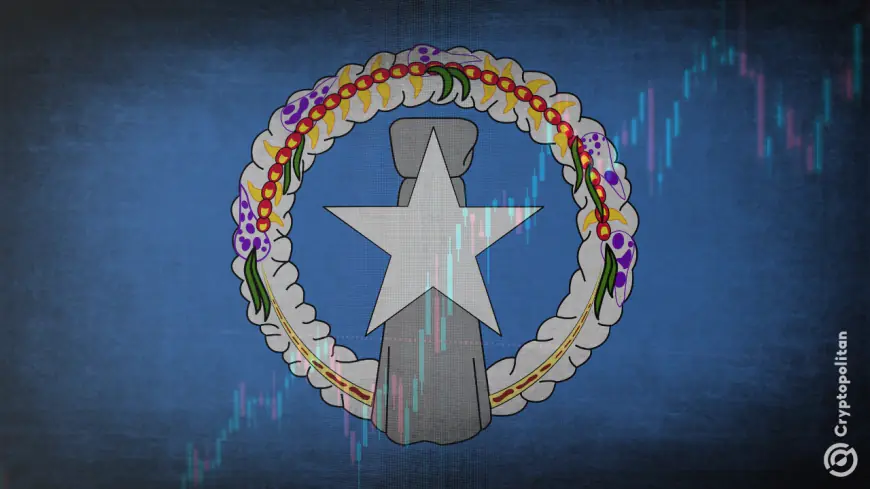Northern Mariana Governor vetoes Tinian stablecoin bill
Northern Mariana Islands Governor Arnold Palacios vetoed a bill that would have allowed the creation of a U.S. dollar-backed Tinian MUSD stablecoin.

Northern Mariana Islands Governor Arnold Palacios vetoed a bill that would have allowed the creation of a U.S. dollar-backed Tinian MUSD stablecoin. His decision ended what would have been a pioneering initiative in U.S. territories, citing legal concerns and potential unconstitutionality.
The Governor of the Northern Mariana Islands (a small U.S. territory located in the Pacific Ocean, north of Guam) vetoed legislation allowing a local government to issue a stablecoin fully pegged to the U.S. dollar. A four-member Tinian delegation to the Marianas legislature passed the bill unanimously on March 12th.
Governor Palacios said he vetoed the bill because it had multiple legal issues and could potentially be unconstitutional. He pointed out that the bill mainly involved issuing licenses to online casinos, but the activities that were attempted to be regulated could not be clearly limited to Tinian Island. However, the Tinian and Aguiguan Legislative Delegation previously found that Tinian Local Law 21-09 authorized the Tinian Casino Gaming Control Commission (TCGCC) to issue licenses for internet gaming.
Veto kills bill aimed at introducing stablecoin and internet-only casinos
Big news! The Northern Mariana Islands voted against a proposed stablecoin bill ????️. AG Arnold Palacios pointed out potential legal issues, raising concerns over the lack of constraints on issuance ????. While some hope to see this change, it's a reminder that crypto legislation is…
— SunLumi (@Girl_SunLumi) April 15, 2025
Governor Palacios’ concerns over jurisdiction and enforcement led to the veto of the proposed Tinian stablecoin bill despite unanimous local legislative support. The bill aimed to introduce internet-only casino licenses and a provision for the Municipality of Tinian to issue a Tinian stable token.
Tinian, with a population of just over 2K, hoped to boost its tourism-based economy through this stablecoin initiative. The stablecoin under the ticker MUSD (Marianas US Dollar) aimed to be fully backed by cash and US Treasury bills.
However, Palacios opposed the bill’s attempt to regulate an industry that might cross judicial boundaries and noted the lack of strong enforcement measures to prevent illegal gambling activities. Republican Senator Jude Hofschneider had previously pushed for amendments to the Tinian laws to allow online casinos to operate and issue the Tinian stablecoin.
The Tinian local government chose tech services firm Marianas Rai Corporation, based in the Commonwealth’s capital of Saipan, to exclusively provide the infrastructure to issue and redeem MUSD and develop its ecosystem. The token was scheduled to launch on the eCash blockchain, a network that was rebranded from Bitcoin Cash ABC in 2021. It is a fork of the Bitcoin Cash blockchain, which was split from Bitcoin in 2017.
Tinian misses the chance to beat Wyoming as stablecoin issuer
The delegation that passed the Tinian stablecoin bill had previously found that many jurisdictions around the world, including the U.S. states of Delaware, Pennsylvania, and Michigan, offered internet-only gaming licenses. The launch of MUSD was meant to coincide with Google’s $1 billion plan announced in April to route fiber-optic subsea cables from the mainland U.S. through Tinian and onto Japan to improve internet connectivity. Notably, the bill’s passage could have seen Tinian’s government become the first U.S. government entity to issue a stablecoin ahead of Wyoming, whose Governor Mark Gordon disclosed in March that the state’s stablecoin could be ready for a launch in July.
Operators licensed in Tinian will still be subject to the UIGEA (Unlawful Internet Gaming Enforcement Act) passed in 2006.
The delegation also found that Wyoming was the first state to enact a bill–the Wyoming Stable Token Act–establishing the authority of the U.S. public entities to issue stablecoin.
The delegation finally found that President Trump’s Executive Order 14178 (‘Strengthening American Leadership in Digital Finance Technology’), signed on January 23rd, highlighted that the digital asset industry played an important role in innovation and economic development in the United States. The financial systems described in the bill allowed the Tinian Municipal Treasurer to track and control digital payments, including payments made by Tinian internet casino licensees and players, ensuring full compliance with U.S. laws relating to internet gambling and other digital financial transactions.
Cryptopolitan Academy: Tired of market swings? Learn how DeFi can help you build steady passive income. Register Now
What's Your Reaction?








































































































